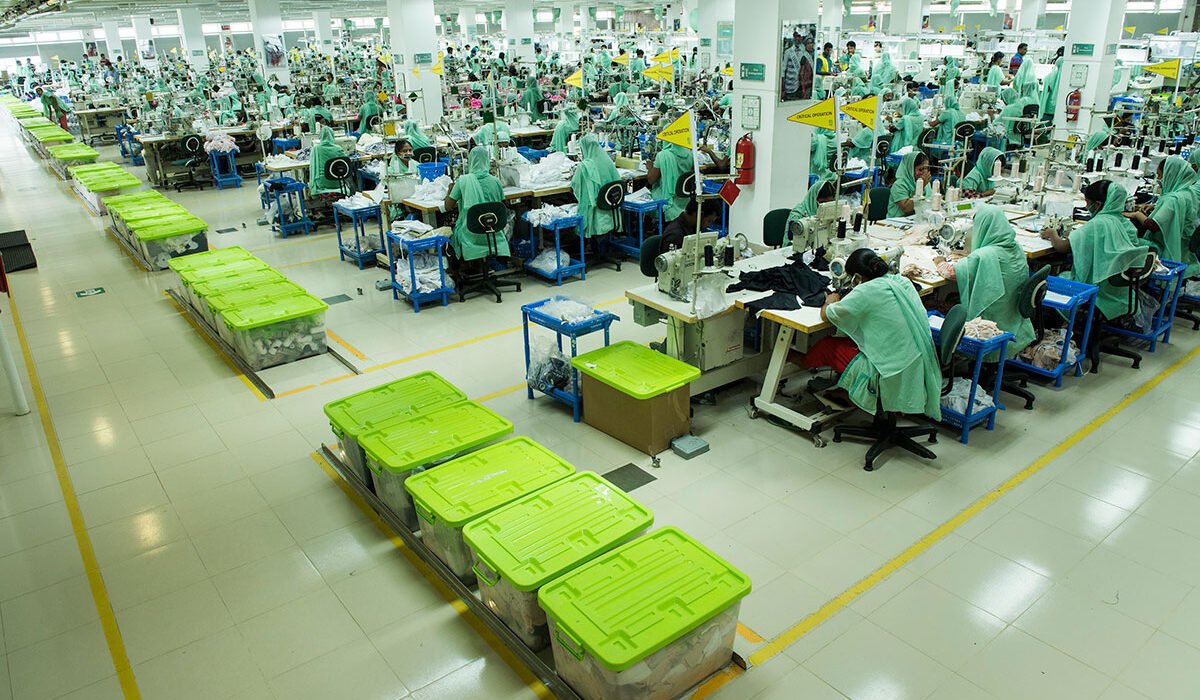As a leading sustainable apparel buying and sourcing agent, Sustainable Weave is dedicated to promoting ethical and eco-friendly practices in the fashion industry. One of our strategic decisions is to partner with manufacturers in Bangladesh. This choice aligns with our mission and reflects a broader industry trend. Here’s why Bangladesh is an ideal hub for sustainable apparel manufacturing, supported by data and insights that make it an attractive destination for brands around the world.
Rich Heritage in Textile Manufacturing
Historical Expertise
Bangladesh has a long-standing history in textile and garment manufacturing, making it a global leader in this field. This expertise is invaluable for brands seeking high-quality production capabilities. The deep-rooted knowledge and skills of Bangladeshi artisans ensure that garments meet rigorous quality standards, essential for maintaining brand reputation.
Skilled Workforce
The garment industry in Bangladesh employs over 4.4 million workers, a majority of whom are women. This workforce is highly skilled in various textile production techniques, from weaving to intricate embroidery. The extensive experience of Bangladeshi workers is a significant asset, enabling brands to produce high-quality apparel efficiently.
Economic Impact and Development
Economic Contribution
The textile and garment sector is the backbone of Bangladesh’s economy, contributing approximately 84% to the country’s total export earnings. For brands, this economic significance translates into a well-established infrastructure, robust supply chains, and a supportive business environment that facilitates efficient production and distribution.
Job Creation and Empowerment
By choosing Bangladesh, brands contribute to job creation and economic empowerment, particularly for women. The industry provides livelihoods for millions, fostering economic stability and social progress. This positive impact on local communities aligns with the ethical commitments of many sustainable brands.
Commitment to Sustainable Practices
LEED-Certified Factories
Bangladesh is home to some of the world’s most environmentally friendly factories. With over 150 LEED-certified factories, including 44 of the top 100 globally, Bangladesh stands out for its commitment to sustainability. These factories employ energy-efficient systems, water-saving techniques, and sustainable materials, aligning with the environmental goals of conscious brands.
Green Energy Initiatives
Many factories in Bangladesh are investing in renewable energy sources such as solar power. This shift reduces the carbon footprint of production processes and supports brands’ commitments to sustainability. By leveraging green energy, these factories contribute to significant reductions in greenhouse gas emissions, a critical factor for eco-conscious brands.
Social Responsibility and Fair Labor Practices
Fair Wages and Working Conditions
Ensuring fair wages and safe working conditions is a cornerstone of ethical manufacturing. Brands partnering with Bangladeshi factories that adhere to these principles can be confident in their commitment to social responsibility. Sustainable Weave works exclusively with factories that uphold stringent labor standards, ensuring dignity and rights for all workers.
Community Development Programs
Many partner factories engage in community development initiatives, providing education, healthcare, and other social services to workers and their families. These programs improve the overall well-being of communities and enhance the social impact of the fashion industry.
Competitive Advantage and Market Responsiveness
Cost-Effectiveness
Manufacturing in Bangladesh offers cost advantages due to lower labor costs compared to other countries. This cost-effectiveness allows brands to invest more in sustainable practices while maintaining competitive pricing. The economic savings gained from lower production costs can be redirected into innovative and eco-friendly initiatives.
Quick Turnaround Times
Bangladesh’s efficient manufacturing processes and strategic location enable quick turnaround times, essential for responding swiftly to market trends. Proximity to major shipping routes further reduces transportation times and costs, enhancing overall efficiency and market responsiveness.
Data-Driven Insights on Sustainability
Environmental Impact Reduction
Adopting sustainable manufacturing practices in Bangladesh contributes significantly to environmental impact reduction. According to the Ellen MacArthur Foundation, a circular economy in fashion could unlock $560 billion by 2030. LEED-certified factories and renewable energy initiatives in Bangladesh are pivotal in achieving these goals.
Economic Benefits
The International Labour Organization (ILO) reports that implementing fair wages and decent working conditions can boost productivity by up to 20%. This increase in productivity benefits both the workers and the brands, fostering a more efficient and ethical supply chain.
Consumer Preferences
A 2020 Nielsen report found that 73% of global consumers are willing to change their consumption habits to reduce environmental impact, and 92% of millennials prefer purchasing from ethical companies. By manufacturing in Bangladesh and adhering to ethical practices, brands can meet these consumer demands, enhancing their reputation and customer loyalty.
Conclusion
Apparel brands choose Bangladesh for sustainable manufacturing due to its rich heritage in textile production, skilled workforce, economic advantages, and unwavering commitment to sustainability and fair labor practices. At Sustainable Weave, we are proud to partner with Bangladeshi factories that share our vision of ethical and sustainable fashion. By manufacturing in Bangladesh, we not only produce high-quality, eco-friendly apparel but also contribute to positive social and economic impacts in the region.
For more insights on our sustainable practices and ethical sourcing, connect with us on LinkedIn and visit our blog for the latest updates.
Sources:
- Bangladesh Garment Manufacturers and Exporters Association (BGMEA)
- World Bank Data on Bangladesh’s Textile Industry
- U.S. Green Building Council (USGBC)
- International Labour Organization (ILO)
- Global Organic Textile Standard (GOTS)
- Ellen MacArthur Foundation
- Nielsen
By integrating data-driven insights and real-world impacts, we provide apparel professionals with a comprehensive understanding of why Bangladesh is the cornerstone of sustainable apparel manufacturing.



1 Comment-
Ultimately, reducing your carbon footprint is about making conscious choices that prioritize sustainability and the environment. By taking steps to go green, you can make a positive impact on the planet and help create a more